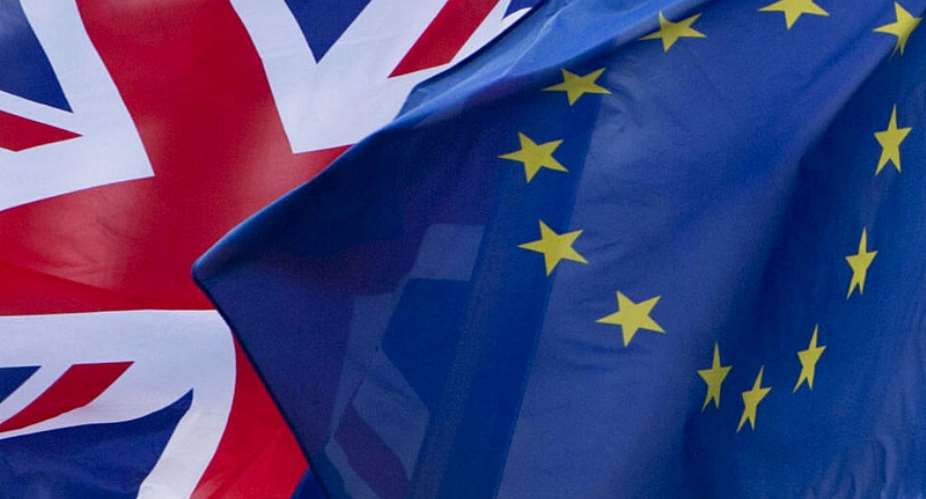This could be the make or break week for negotiations on a deal on Britain's future relationship with the European Union, which must be implemented in less than one month.
The European Union's chief negotiator made clear to representatives of the 27 member states on Wednesday that differences in the talks remain and that a deal still hung in the balance, according to Reuters news agency, which quoted a senior EU diplomat.
A European source close to talks also told AFP the negotiations had reached their final phase, and that Thursday this week would be as far as talks could go, deal or no deal.
Another Brussels-based diplomat, thought they could drag on until December 10, when European leaders hold a summit and might have to approve or veto whatever offer is on the table.
Unease over von der Leyen
Meanwhile in an unusual development, the 27 EU member states on Tuesday warned their negotiators not to lose their nerve in talks with Britain, as the process enters its most delicate phase.
A group of EU envoys expressed concern that their negotiating team, led by Michel Barnier, was under too much pressure to sign a deal, and at risk of caving in on long-held principles.
"There is a growing unease among member states that Commission President Ursula von der Leyen, egged on by Germany or not, is doing whatever it takes to get a deal," an EU diplomat with close knowledge of the talks told AFP.
Germany, already the bloc's most economically powerful nation, currently holds the EU's rotating presidency.
Another diplomat said the European Commission had been given a "serious warning" from France that it was making dangerous concessions on key negotiating lines "that risked dividing member states".
A European source confirmed that the Netherlands and France were the most vocal in their worry that Brussels might waver, but that the unease was widely shared by the EU-27.
Negotiations in London towards an EU-UK deal are deadlocked and failure to clinch a deal would create serious economic disruption both in Britain and the 27 EU member states.
There is pressure from businesses in both in the UK and the EU to finalise a zero tariffs, zero quotas accord, against a background of economic criis caused by the Covid-19 pandemic.
Sticking points remain
The main challenge in the talks is to find some sort of mechanism to guarantee that, if it is granted access to the EU single market, Britain will remain fairly aligned to EU rules on the environment, labour laws and health.
Known as the "level-playing-field", the condition is paramount for the Europeans, who fear a direct threat to their single market by a sizeable nearby country that would not need to play by the same rules.
The question of how to adjudicate any disagreements once any new deal is in place is another stumbling block in talks as well as how much access British and EU fishermen should have to each other's fishing wathers.
On Monday, France's EU affairs minister Clément Beaune told reporters that French fishermen were « no less important » than British fishermen, adding that the French fishermen « didn't have the right to vote in the referendum », in a reference to the vote in 2016 in which the UK chose to leave the European Union.
Talks that have already shot past several mooted deadlines and any deal agreed by Barnier's team will need the formal ratification of EU member states as well as the European Parliament.
Deal or no deal, ties between the EU and UK will dramatically change with increased red tape in the form of customs declarations and permits replacing the largely seamless transportation of goods between Britain and EU.
Holidaymakers and business travellers also face the prospect of passport queues at border control on both sides of the Channel, and in airports.





 SSNIT must be managed without gov’t interference – Austin Gamey
SSNIT must be managed without gov’t interference – Austin Gamey
 Ejisu by-election could go either way between NPP and independent candidate — Gl...
Ejisu by-election could go either way between NPP and independent candidate — Gl...
 We never asked ministers, DCEs to bring NPP apparatchiks for returning officer r...
We never asked ministers, DCEs to bring NPP apparatchiks for returning officer r...
 No one denigrated the commission when you appointed NDC sympathizers during your...
No one denigrated the commission when you appointed NDC sympathizers during your...
 Used cloth dealers protests over delayed Kumasi Central Market project
Used cloth dealers protests over delayed Kumasi Central Market project
 A/R: Kwadaso onion market traders refuse to relocate to new site
A/R: Kwadaso onion market traders refuse to relocate to new site
 Dumsor: Corn mill operators at Kaneshie market face financial crisis
Dumsor: Corn mill operators at Kaneshie market face financial crisis
 Jamestown fishermen seek support over destruction of canoes by Tuesday's heavy d...
Jamestown fishermen seek support over destruction of canoes by Tuesday's heavy d...
 Election 2024: EC to commence voter registration exercise on May 7
Election 2024: EC to commence voter registration exercise on May 7
 Western Region: GWL hopeful of restoration of water today in Sekondi-Takoradi
Western Region: GWL hopeful of restoration of water today in Sekondi-Takoradi
